_tmnl.jpg)
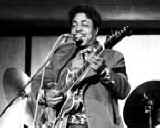
John Shines |
From the start, Chester’s voice was startling—huge
and raw like Charlie Patton’s, and even more powerful.
He learned to play guitar and blues harp simultaneously,
using a rack-mounted harp. His stage presence was
absolutely feral, exaggerated by his physical size—he
stood 6' 3" tall, weighed 275 lbs late in life, and wore size 16
shoes. John Shines, who also traveled with Robert Johnson, said, “I was afraid of the Wolf, like you
would be of some wild animal....It was the SOUND he was giving off!”
Drafted in 1941, Wolf went into the Army Signal Corps
and spent his time in the service mostly in the Pacific
Northwest at Fort Lewis, Washington and Camp Adair,
Oregon. He suffered a nervous breakdown in 1943 and was discharged from the
Army, and soon moved with his girlfriend to a house in Lebanon,
Tennessee. In 1945, his girlfriend also suffered a nervous breakdown and
was institutionalized. Wolf left Tennessee and returned to
playing music, and helping his father on his farm during the spring and
fall. The rest of the year, Wolf was traveling through the South,
playing with
Delta bluesmen such as Willie Brown and Son House.
In 1948, Wolf moved to West Memphis, Arkansas, where he put
together a band that included harmonica players James
Cotton and Junior Parker and guitarists Pat Hare, Matt
“Guitar” Murphy, and Willie Johnson. He also got a spot
on radio station KWEM, playing blues and endorsing farm
gear.
|
|
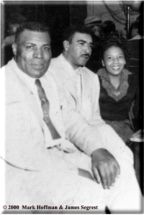
_tmnl.jpg)
|
In 1951, Wolf came to the attention of a young Memphis record
producer, Sam Phillips, who took him into the studio and recorded “Moanin’ at Midnight” and
“How
Many More Years,” and leased them to Chess Records.
Released in 1952, they made it to the top 10 on
Billboard’s R&B charts. Wolf cut other songs that
Phillips farmed out both to Chess and RPM. Chess
eventually won the fight for Wolf, who moved to Chicago
in 1953 and called the city home for the rest of his
life.
Phillips, who certainly recognized musical talent
(he later “discovered” Elvis Presley, Carl Perkins,
Jerry Lee Lewis, Johnny Cash, and Charlie Rich), said
that Wolf was his greatest discovery and losing Wolf to
Chicago was his biggest career disappointment.
“Chester Burnett had such a soulful sound that even
though his words were always good blues words, that man
didn’t have to say a sound. Just like his song ‘Moanin’
at Midnight.’…When it came out, it was as if everything
just stopped, everything that was going on. Time
stopped. Everything stopped. And you heard the Wolf.
|
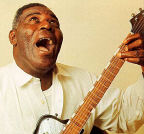
|
“Had the young people truly got to hear him more, had he played on
more programs listened to young people, who knows? Had this guy gotten
that break, the kids would have absolutely gone crazy. He would have
been one of the all-time music heroes. I mean that.”
|
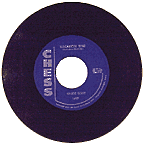
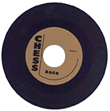 |
As it was, Wolf wrote and recorded songs for Chess
that became blues standards: “Smokestack Lightning,” “Killing Floor,” and many othes. Chess songwriter Willie
Dixon also wrote classic blues songs for Wolf such as
“Spoonful,” “Little Red Rooster,” “Evil,” “Back Door
Man,” and “I Ain’t Superstitious.”
Wolf’s great rival for Chicago blues supremacy was
his sometime friend, Muddy Waters. Their rivalry
continued through the 1960s, aggravated by Waters’
temporary theft of Wolf’s guitarist, Hubert Sumlin. Like
Waters, Wolf was an ambitious man. Their competition,
though friendlier than most fans thought, forced both to
struggle to be the best in blues.
|
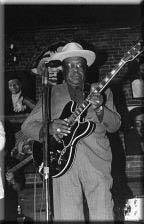
|
Several musicians who played with both Muddy and
Wolf say Wolf was a more professional band leader. Wolf
paid his people on time and withheld unemployment
insurance and even Social Security, which some of his
band members are drawing today. Wolf also stood up for
his band and wouldn’t be taken advantage of. Jimmy
Rogers, who played for years in Muddy’s band, said,
“Wolf was better at managing a bunch of people than Muddy or anybody
else. Muddy would go along with the Chess company. [But] Wolf would
speak up for himself.”
|
|
|
_tmnl.jpg)
![]()